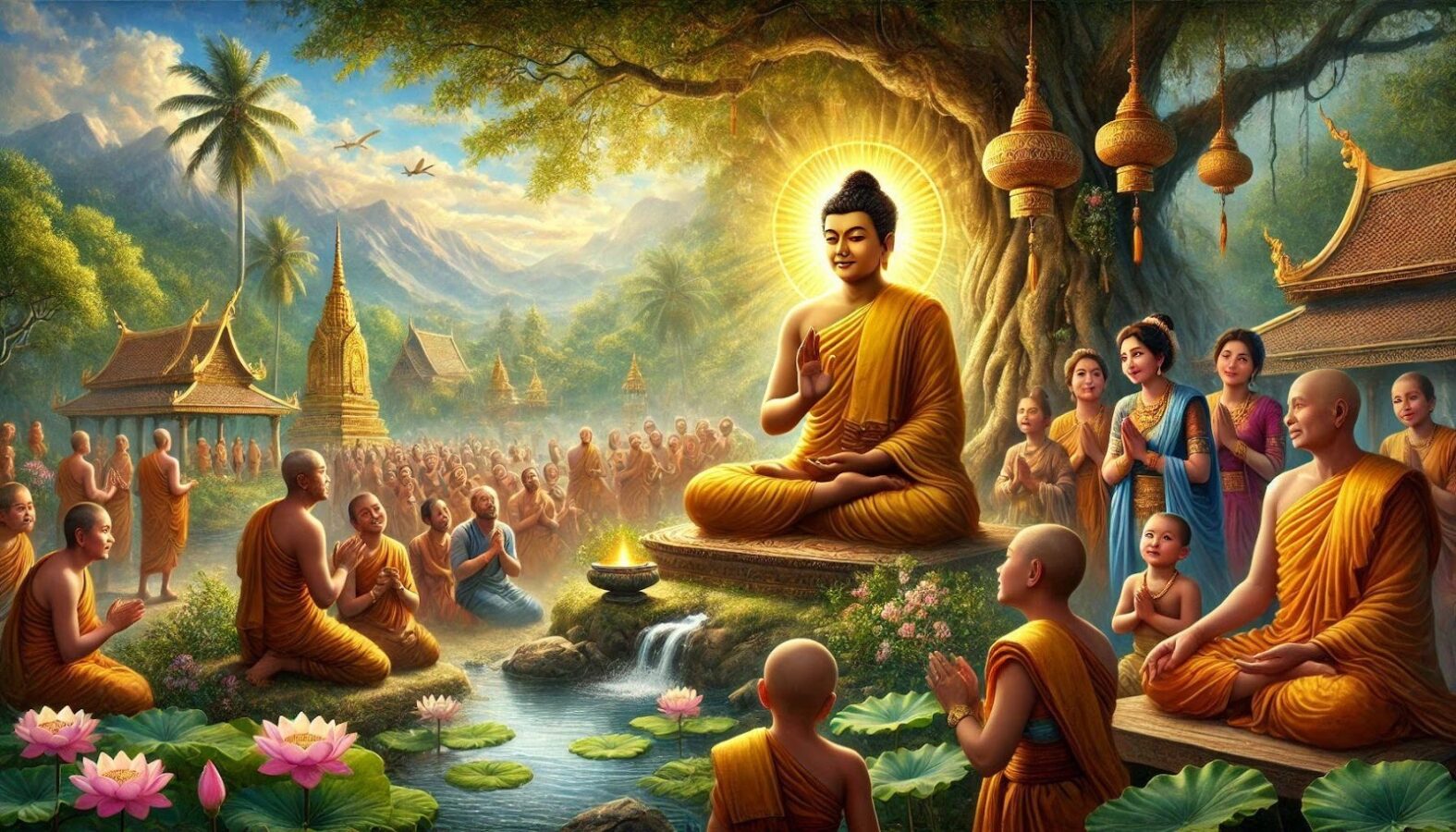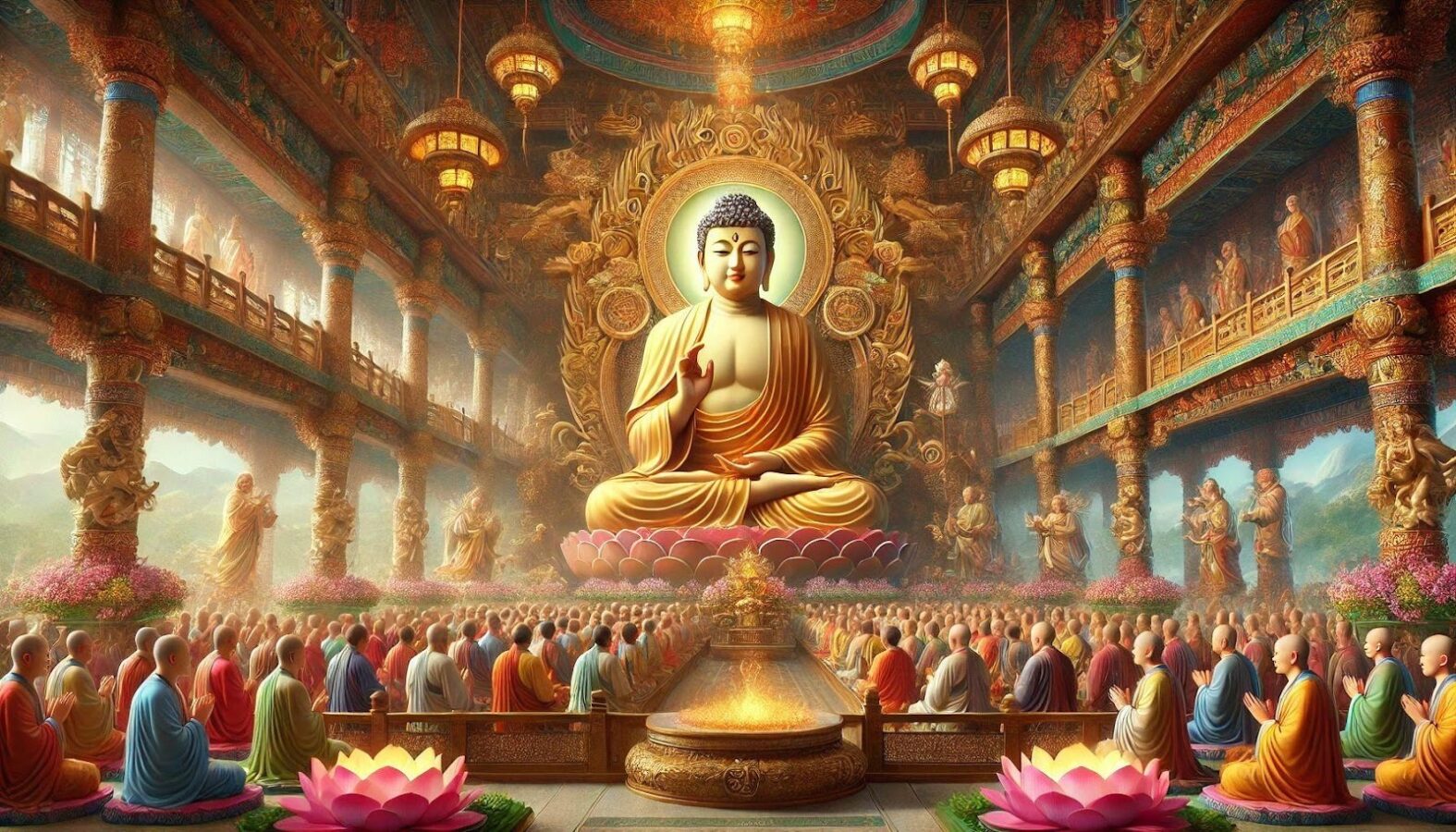
Date: 08/23/2025 08/24/2025
Location: Star Lake Meditation Center
Teacher: Shilin Long
Dharma Talk
Framing Others Brings One Bodily Sores
In the country of Śrāvastī, there was a wealthy elder who, in order to pray for descendants, exhausted all efforts. Not only did he lavishly marry a woman from a noble family, but he also entertained his newlywed wife with various musical performances. Unexpectedly, after ten months of pregnancy, the wife gave birth to a boy covered with malignant sores, oozing pus and blood. The pitiful child had not a single good day since birth, constantly groaning and crying in pain, causing no peace in the household. The elder and his wife had no choice but to name him “Shēnhào” (Groan). As the child grew day by day, he consulted all the renowned doctors in the country, yet the malignant sores showed no signs of improvement.
After growing up, Shēnhào heard that in the Jīvaka Grove Monastery in the city, there was a good physician who could make the blind see, the deaf hear, the lame walk, and the sick healthy. He inquired about the location and, enduring the pain alone, set off. Along the way, passersby, upon seeing his appearance and smelling his stench, all fled in panic. After a period of arduous journey, Shēnhào finally arrived at the Jīvaka Grove Monastery and saw the World-Honored One seated, possessing the thirty-two marks and eighty minor characteristics, radiating brilliance like hundreds of thousands of suns, making him forget the pain on his body. With utmost sincerity, Shēnhào prostrated to the Buddha, who then preached the Dharma to him, analyzing the five aggregates—form, feeling, perception, volition, and consciousness—as akin to festering sores and ulcers causing suffering, and like poisonous arrows injuring people fatally, truly the most severe root of illness!
Moved by the Buddha’s compassion, Shēnhào felt an unprecedented sense of repentance and emotion from the depths of his heart. He prostrated himself in remorse for his past offenses, deeply repenting the evil retribution of this life. Soon, the malignant sores covering his body subsided, and he felt an incomparable coolness, as if reborn. Shēnhào immediately requested to renounce the household life and practice under the Buddha. The Buddha said, “Welcome, bhikkhu,” and Shēnhào’s hair fell off, and the Dharma robes adorned his body. After ordination, Shēnhào diligently practiced and soon attained the fruit of Arhatship, transcending the suffering of the three realms.
At the request of the bhikkhus, the Buddha narrated the past causes of Bhikkhu Shēnhào to alert the assembly.
Countless eons ago, in the country of Vārāṇasī, there were two elders who were powerful and immensely wealthy. They had past grievances and harbored mutual resentment, often hating each other. One elder took the initiative, offering countless treasures to the king and repeatedly slandering the other elder before the king, trying every means to make the king believe that the other harbored schemes to harm him. As the king’s mind gradually wavered, he requested the king to allow him to deal with the other elder at will. One day, the malicious elder led a large group of people to storm into the other elder’s house, tied up everyone, plundered the treasures, captured the elder, and subjected him to whipping and torture, causing his entire body to be wounded and bleeding profusely, making life worse than death.
The elder, struck by disaster, seized an opportunity to escape, barely saving his life. Deeply feeling that worldly affairs are like dreams and that fortune and misfortune are impermanent, he retreated to the mountains and forests, wholeheartedly practicing to escape the cycle of suffering. Eventually, he realized the principle of dependent origination and emptiness of all phenomena and attained the fruit of Pratyekabuddha. Understanding that all enemies and relatives are equal, he compassionately felt that the perpetrator would fall into extreme suffering. He then manifested various supernatural transformations before the malicious elder, making him yearn and repent his past offenses, thereby developing faith and reverence for the sages and making various offerings. In this way, he transformed evil karma into good seeds.
The World-Honored One told the bhikkhus, “The malicious elder at that time is the present Bhikkhu Shēnhào.” Upon hearing the teaching, the bhikkhus’ faith in practice became even more firm, joyfully following the Buddha’s teachings.

